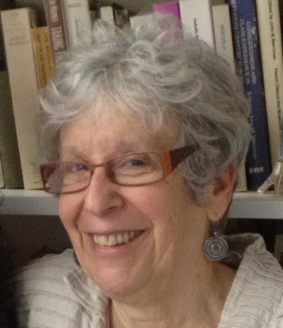Related Research Articles

Gender includes the social, psychological, cultural and behavioral aspects of being a man, woman, or other gender identity. Depending on the context, this may include sex-based social constructs as well as gender expression. Most cultures use a gender binary, in which gender is divided into two categories, and people are considered part of one or the other ; those who are outside these groups may fall under the umbrella term non-binary. A number of societies have specific genders besides "man" and "woman," such as the hijras of South Asia; these are often referred to as third genders. Most scholars agree that gender is a central characteristic for social organization.
Gender studies is an interdisciplinary academic field devoted to analysing gender identity and gendered representation. Gender studies originated in the field of women's studies, concerning women, feminism, gender, and politics. The field now overlaps with queer studies and men's studies. Its rise to prominence, especially in Western universities after 1990, coincided with the rise of deconstruction.
Gwendolen, also known as Gwendolin, or Gwendolyn was a legendary ruler of ancient Britain. She came to power in 1115BC.

Joan Wallach Scott is an American historian of France with contributions in gender history. She is a professor emerita in the School of Social Science in the Institute for Advanced Study in Princeton, New Jersey. Scott is known for her work in feminist history and gender theory, engaging post-structural theory on these topics. Geographically, her work focuses primarily on France, and thematically she deals with how power works, the relation between language and experience, and the role and practice of historians. Her work grapples with theory's application to historical and current events, focusing on how terms are defined and how positions and identities are articulated.
While in ordinary speech, the terms sex and gender are often used interchangeably, in contemporary academic literature, the terms often have distinct meanings, especially when referring to people. Sex generally refers to an organism's biological sex, while gender usually refers to either social roles typically associated with the sex of a person or personal identification of one's own gender based on their own personal sense of it. Most contemporary social scientists, behavioral scientists and biologists, many legal systems and government bodies and intergovernmental agencies such as the WHO make a distinction between gender and sex.

African feminism includes theories and movements which specifically address the experiences and needs of continental African women. From a western perspective, these theories and movements fall under the umbrella label of Feminism, but this categorization is misleading for many branches of African "feminism". African women have been engaged in gender struggle since long before the existence of the western-inspired label "African feminism," and this history is often neglected. Despite this caveat, this page will use the term feminism with regard to African theories and movements in order to fit into a relevant network of Wikipedia pages on global feminism. Because Africa is not a monolith, no single feminist theory or movement reflects the entire range of experiences African women have. African feminist theories are sometimes aligned, in dialogue, or in conflict with Black Feminism or African womanism. This page covers general principles of African feminism, several distinct theories, and a few examples of feminist movements and theories in various African countries.

Hope Emily Allen (1883–1960), was an American medievalist who is best known for her research on the 14th-century English mystic Richard Rolle and for her discovery of a manuscript of the Book of Margery Kempe.

Comparative Studies in Society and History is a peer-reviewed academic journal published quarterly by Cambridge University Press on behalf of the Society for Comparative Study of Society and History. It was established in 1958 by Sylvia L. Thrupp. When she retired as editor-in-chief, she entrusted the journal's editorship and managing editorship to Raymond Grew and his wife Daphne Merriam Grew.
Gender essentialism is a theory which attributes distinct, intrinsic qualities to women and men. Based in essentialism, it holds that there are certain universal, innate, biologically based features of gender that are at the root of many of the group differences observed in the behavior of men and women.
Jacqueline Felice de Almania, was reportedly from Florence, Italy. She was an early 14th-century French physician in Paris, France who was placed on trial in 1322 for unlawful practice.
In medieval Europe, attitudes toward homosexuality varied from region to region, determined by religious culture; the Catholic Church, which dominated the religious landscape, considered, and still considers, sodomy as a mortal sin and a "crime against nature". By the 11th century, "sodomy" was increasingly viewed as a serious moral crime and punishable by mutilation or death. Medieval records reflect this growing concern. The emergence of heretical groups, such as the Cathars and Waldensians, witnesses a rise in allegations of unnatural sexual conduct against such heretics as part of the war against heresy in Christendom. Accusations of sodomy and "unnatural acts" were levelled against the Order of the Knights Templar in 1307 as part of Philip IV of France's attempt to suppress the order. These allegations have been dismissed by some scholars.
Margaret Schlauch was a scholar of medieval studies at New York University and later, after she left the United States for political reasons in 1951, at the University of Warsaw, where she headed the departments of English and General Linguistics. Her work covered many topics but included focuses on Chaucer, Anglo-Saxon, and Old Norse literature.
Nazhūn bint al-Qulāʽiya al-Gharnātiya was a Granadan Qiyan and poet, noted for her outrageous verse.
The Society for Medieval Feminist Scholarship (SMFS) is an academic organization which "promotes the study of the Patristic Age, the Middle Ages, and the Early Modern era from the perspective of gender studies, women's studies, and feminist studies". Its development followed the rise of the study of medieval women in the 1970s and 1980s, and sought to increase the number of and sponsor papers about medieval women, and feminist theory driven scholarship, at the largest international medieval studies conferences, International Congress on Medieval Studies in Kalamazoo and Leeds IMC.
Medieval female sexuality is the collection of sexual and sensual characteristics identified in a woman from the Middle Ages. Like a modern woman, a medieval woman's sexuality included many different aspects. Sexuality does not only refer to a woman's sexual activity, as sexual lives were as social, cultural, legal, and religious as they were personal.
Jane Chance, also known as Jane Chance Nitzsche, is an American scholar specializing in medieval English literature, gender studies, and J. R. R. Tolkien. She spent most of her career at Rice University, where since her retirement she has been the Andrew W. Mellon Distinguished Professor Emerita in English.
Fedwa Malti-Douglas is a Lebanese-American professor and writer. She is a professor emeritus at Indiana University Bloomington. Malti-Douglas has written several books, including The Starr Report Disrobed (2000). She received a National Humanities Medal in 2015.
Lisa M. C. Weston is a scholar of medieval literature and Old English language. She teaches at Fresno State Department of English, and served as interim chair of the department in 2019.
Eleanor Prescott Hammond (1866–1933) was an American scholar of English literature, particularly Chaucer studies. She was born in Worcester, Massachusetts, which she left to study at the University of Leipzig. She then studied at Oxford under Arthur Sampson Napier, earning her B.A. in 1894. She obtained a Ph.D. at the University of Chicago in 1898, then taught there in the English department before leaving to become a schoolteacher and independent scholar. She also taught at Wellesley College. She never married, and died in Boston in 1933.
Sylvia Lettice Thrupp was an English-born, Canadian-American medievalist, comparative historian and social scientist. She is sometimes described as a "foremother of medievalists."
References
- 1 2 3 4 "Research Scholars and Guests". Max Planck Institute for the History of Science in Berlin. Retrieved 19 February 2016.
- ↑ Africa, Chris (2010). "A Joan Cadden Bibliography". Medieval Feminist Forum . 46 (1): 127–128. doi: 10.17077/1536-8742.1856 .
- ↑ "Back Matter". Isis. 69 (1): 155–158. 1978. doi:10.1086/isis.69.1.230676. JSTOR 230676. S2CID 224833886.
- ↑ "Dibner Visiting Historian of Science Program Records, 1992-2001" (PDF). Smithsonian Institution Archives . Retrieved 19 February 2016.
- ↑ "Society Past Presidents". History of Science Society. Retrieved 19 February 2016.
- 1 2 3 4 Green, Monica H. (2010). "Introduction to Tributes to Joan Cadden". Medieval Feminist Forum. 46 (1): 63–65. doi: 10.17077/1536-8742.1848 .
- ↑ "Joan Cadden". UC Davis Department of History. Retrieved 18 February 2016.
- 1 2 3 Puff, Helmut (2010). "Homagium: Joan Cadden's "Meanings of Sex Difference in the Middle Ages"". Medieval Feminist Forum. 46 (1): 122–126. doi: 10.17077/1536-8742.1855 .
- 1 2 Lugt, Maaike van der (2010). "Sex Difference in Medieval Theology and Canon Law: A Tribute to Joan Cadden". Medieval Feminist Forum. 46 (1): 101–121. doi: 10.17077/1536-8742.1854 .
- ↑ Park, Katharine (1995). "Reviewed Work: The Meanings of Sex Difference in the Middle Ages: Medicine, Science, and Culture by Joan Cadden". Journal of the History of Biology . 28 (3): 551–553. doi:10.1007/bf01059393. JSTOR 4331368. S2CID 189855222.
- ↑ Dreger, Alice D.; Schiebinger, Londa (1998). "Gender and Sex". In Hessenbruch, Arne (ed.). Reader's guide to the history of science. London: Fitzroy Dearborn. pp. 287–288. ISBN 9781884964299 . Retrieved 19 February 2016.
- ↑ Park, Katharine (2010). "Cadden, Laqueur, and the "One-Sex Body"". Medieval Feminist Forum. 46 (1): 96–100. doi: 10.17077/1536-8742.1853 . Retrieved 19 February 2016.
- 1 2 "Nothing Natural Is Shameful Sodomy and Science in Late Medieval Europe". University of Pennsylvania Press. Retrieved 19 February 2016.
- ↑ Kuffner, Emily (2014). "Nothing Natural Is Shameful: Sodomy and Science in Late Medieval Europe by Joan Cadden". Comitatus: A Journal of Medieval and Renaissance Studies. 45 (1): 215–218. doi:10.1353/cjm.2014.0071 . Retrieved 19 February 2016.
- ↑ Peek, Wendy Chapman (1995). "Book Reviews". Journal of the History of Medicine and Allied Sciences. 50 (4): 563–564. doi:10.1093/jhmas/50.4.563.
- ↑ "Front matter". Medieval Feminist Forum. 46 (1). 2010. Archived from the original on November 25, 2015. Retrieved 19 February 2016.